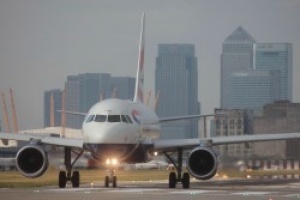UK government seeks to redefine aviation policy

Britain’s aviation industry should be able to grow and prosper but not at any price, transport secretary Philip Hammond has said.
The announcement comes as the coalition government set out to define the debate for a new sustainable UK aviation policy.
Following decisions not to support new runways at Heathrow, Gatwick and Stansted, the government is seeking views on the shape its future aviation policy should take and the issues it needs to address.
The central theme will be how aviation can support economic growth while addressing its environmental impacts such as carbon emissions as well as local noise and air quality issues.
Earlier this the Competition Commission confirmed BAA would be forced to sell Stansted Airport.
Transport secretary Philip Hammond said: “Aviation is a crucial part of this country’s transport infrastructure; it should be able to grow, prosper and support wider economic growth.
“But we are not prepared to support this growth at any price - the environmental impacts of flying - both local and global - must be addressed.
“However, it would be wrong to suggest that the Government holds all the answers. That is why this document asks a wide range of interested parties for their views on the key questions we face.
“Clearly we won’t agree on everything, but by working closely with key stakeholders at this early stage, we can provide a policy framework for aviation which strikes a balance between different interests.”
The government has today published a scoping document setting out the key principles and challenges of a new greener aviation policy.
Comments are being invited on the scoping document until the end of September.
A draft aviation policy framework will then be published for consultation in March 2012, with a view to formal adoption by March 2013.
ABTA
However, ABTA has warned the new consultation is not likely to solve the fundamental problems facing British Aviation, with the UK likely to continue slipping down the international competitiveness charts as a result.
Luke Pollard, ABTA’s head of public affairs said: “We welcome the government’s challenge to engage in a serious debate about the future of aviation, and the environmental impact of flying, but any serious debate can’t ignore the impacts of a shortage of capacity in the UK’s airports in the South East.
“The government’s decision to remove airport capacity from discussion is like issuing a rail policy without considering train tracks.
“Overcrowding is immediate, real and pressing given that the UK is hoping to welcome tens of thousands of extra overseas visitors in 2012 and hopes to use the travel and tourism industry to grow the UK economy in the long term.”

